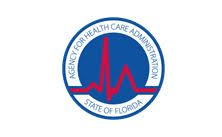Dr. Ernesto Bernal-Mizrachi, MD
Endocrinology, Diabetes and Metabolism

Find In-Network Specialists
Florida's Medicaid Managed Care program was established to streamline the delivery of healthcare services to Medicaid recipients in the state. The program was introduced in 2012 as part of a broader initiative to increase efficiency and improve health outcomes through managed care. Over the years, Florida has transitioned a significant portion of its Medicaid population into managed care, leading to an extensive growth in both participation and the number of plans available.
As of 2023, Florida's Medicaid Managed Care program serves over 4 million beneficiaries, making it one of the largest programs of its kind in the United States. The program offers various plan types, including Health Maintenance Organizations (HMOs), Provider Service Networks (PSNs), and Specialty Plans aimed at populations with specific needs, such as individuals with developmental disabilities or serious mental illnesses. This diversification allows for tailored care that better meets the varying needs of Florida's Medicaid recipients.
Florida's Medicaid Managed Care (MMC) program differs from Traditional Medicaid in several ways. Under MMC, beneficiaries receive services through managed care organizations (MCOs) rather than the fee-for-service model of Traditional Medicaid. This means that MCOs coordinate all care for beneficiaries, which can lead to better preventive care and management of chronic conditions. Additionally, MMC plans often include additional benefits such as transportation services, wellness programs, and sometimes even dental and vision care, which may not be available in Traditional Medicaid.
Florida's Medicaid Managed Care program emphasizes quality through a variety of strategies. MCOs are held to performance standards that are tracked regularly, including metrics related to patient satisfaction, health outcomes, and service access. State audits and performance data are also publicly reported to ensure transparency. Furthermore, plans may be incentivized financially to meet quality benchmarks, which encourages providers to focus on delivering high-quality care. The state also collaborates with stakeholders to continuously improve these quality measures.
Children with special health care needs in Florida's Medicaid Managed Care have access to specialized services and care coordination. The state offers specialized plans known as the 'Child Welfare' or 'Medically Complex (MC) plans' aimed at providing tailored services for these children. These plans ensure that emphasis is placed on comprehensive care management, which includes access to specialists, additional therapies, and behavioral health services. Care coordinators work closely with families to navigate available resources, ensuring that children receive the appropriate level of care and support.
Beneficiaries in Florida who wish to switch their Medicaid Managed Care plan have specific steps to follow. They can make changes during the annual Open Enrollment period or if they experience a qualifying life event (like moving to a new county). To initiate the switch, beneficiaries should contact the Statewide Medicaid Managed Care (SMMC) help line or visit the Florida Agency for Health Care Administration's website. They will need to provide identifying information and can review the available plans to ensure the new plan meets their health needs. It’s important to check for specific guidelines and timeframes for making these changes.